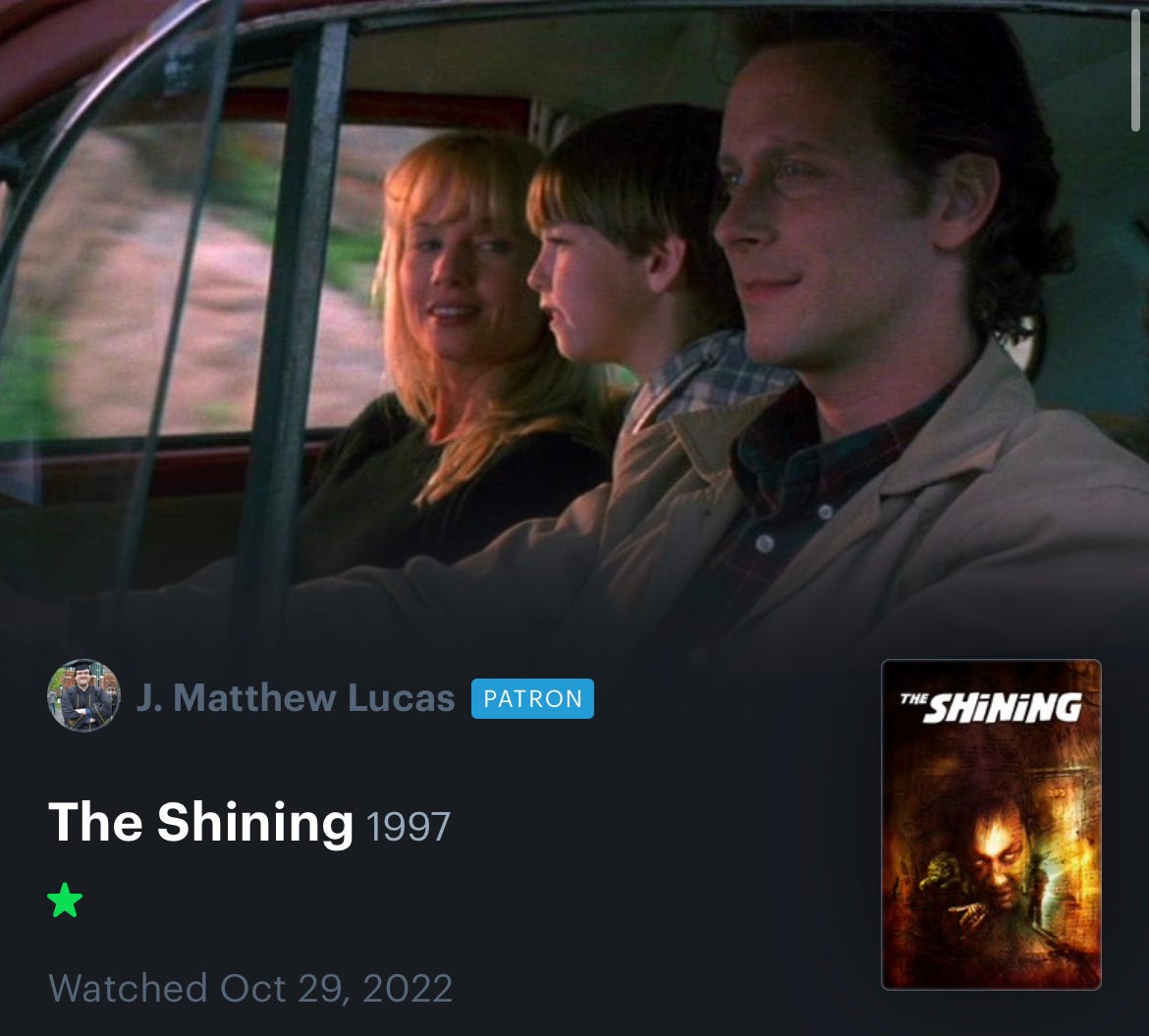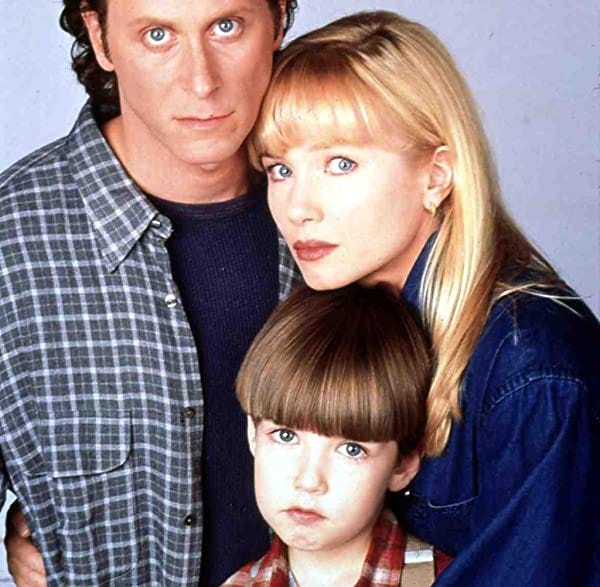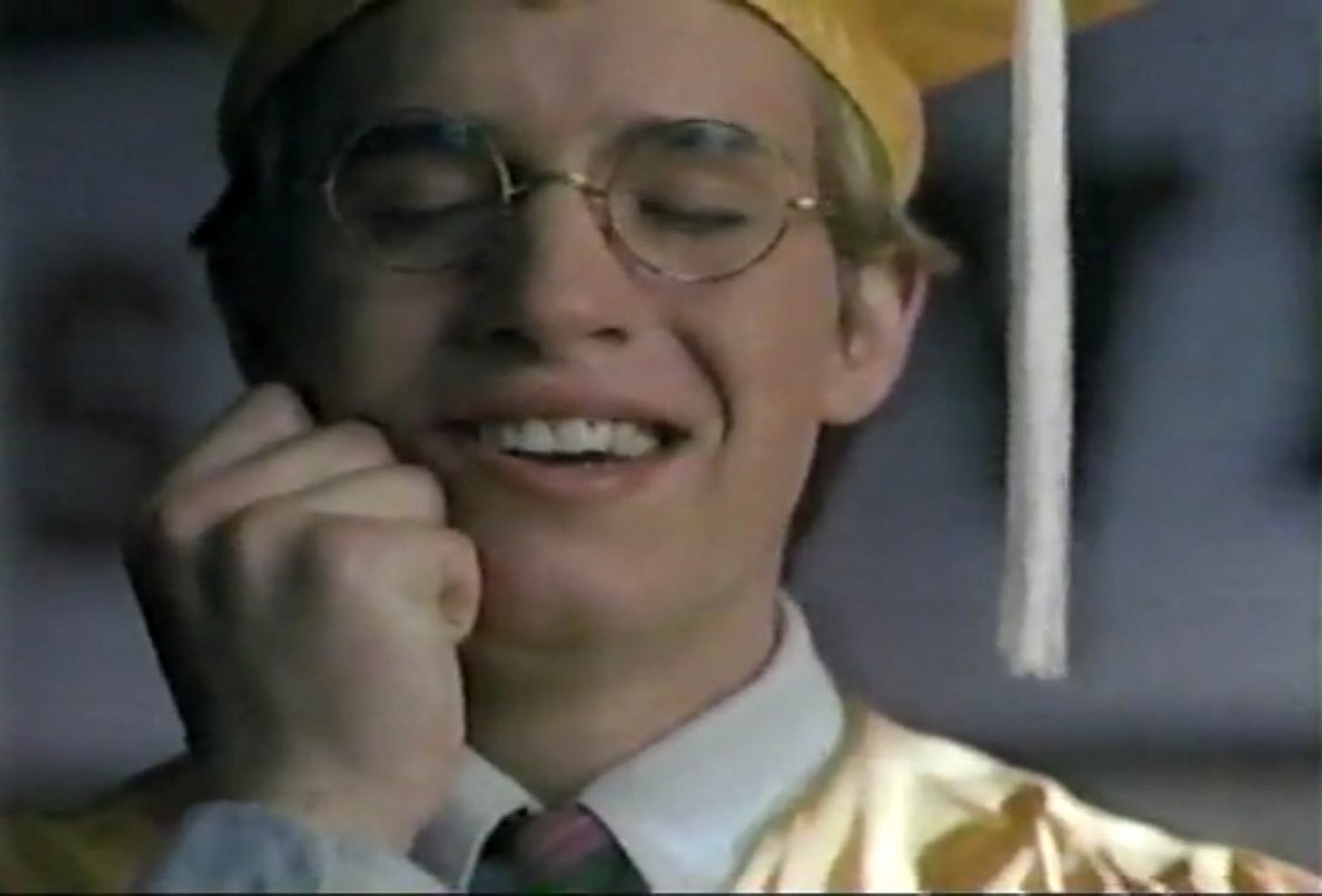The Shining Miniseries (1997) Review
A Full Dissection of “The Shining” Adaption That Stephen Kings Says Is Better Than The Classic Film
“The Shining” is perhaps my favorite horror movie ever made, and as such I’ve been wanting to watch the 1997 miniseries out of curiosity as long as I can remember. Since the viewing experience watching this was for a full six hours, I took extensive notes. So let's dissect this thing.
Listen, I love Stephen King as much as the next guy, and I have massive respect for him and his output, as perhaps no author in history has been as adaptable as King is. So, while it’s impossible to dispute that the guy’s a legend and a genius, it’s also equally as indisputable that he can be one dumbass motherfucker.
In particular, his 40+ year beef with Kubrick’s “The Shining,” because it wasn’t that faithful to his book, has been his consistently worst opinion, that I can think of at least. We’ll get into his specific beefs, but I think it mostly stems out of a sense of hurt pride, because novelist Diane Johnson, who adapted the book to screen, openly thought the source material was compelling garbage, saying:
“Among us, The Shining (the novel) is not part of great literature. It is scary, it is effective and it works, without further ado (…). But it is precisely interesting to see how a very bad book can also be very effective. (…) It's quite pretentious. But it is also true that one has less scruples when destroying it: one is aware that a great work of art is not being destroyed.”
I mean, goddamn. Granted, Kubrick made a lot of changes to Johnson’s script, and he liked the book much better than her, because he saw the potential of a great movie, but it’s kind of understandable King would hold a grudge from that. This might be the most adapted writer of at least our modern era, and at least 90% of those adaptations are very reverent to King himself, even the ones that deviate from the source material.
So let’s now get into specifics about this miniseries that adheres closely to the book, which I’ve never read, and the Kubrick movie.
Jack Torrance: King’s main stated issue with Kubrick’s film has always been the casting of Jack Nicholson, and the fact Jack seems off his rocker before he even gets to the hotel. Which, understandable.
Nicholson, even though he can play warm and loving, has always had a shitheel aura about him that’s made him so perfect playing assholes, and even the Devil himself. But he’s also one of the best actors in film history, which is very evident in all the choices he makes in the film.
You may know Jack is crazy, because Nicholson always seems crazy, but that doesn't change the fact he’s perfect at playing the madness that Jack descends into. Martin Sheen may have been fine in an adaption that had more of the pre-Overlook life of Jack, but Kubrick rightfully just focuses on the Overlook to keep things claustrophobic.
Steven Weber on the other hand, plays the role as you’d expect from somebody that was like the 50th choice for the role, and only got it because literally everybody else passed, and they were running out of time. I’ve never gotten Weber in general because I never watched “Wings,” but he’s never stood out as anything but a generic white guy that stars in network TV shows. He’s also a decent comedic actor, having the best moment in Mel Brooks’ “Dracula: Dead and Loving It,” whereas this is pure drama, which the guy can not sell to save his life.
Weber is not the worst actor here, but he sure as fuck isn’t convincing as either side of Jack. In particular, he plays the drunken rage stupors like the actors portrayed being high in “Reefer Madness.” Either Weber is just that bad of an actor, or he’s never touched a drop of alcohol in his life, because his depiction here is baffling.
In my recent review of Frank Darbont’s “Buried Alive,” I remarked that Tim Matheson’s dark side in that movie surprised me, and I suggested he may have made a good Jack Torrance in this miniseries, and I stand by that after seeing this. It wouldn’t have saved the movie whatsoever, but it would have been at least slightly better. But then again, maybe Matheson, like the rest of Hollywood, would have passed because they knew there’s no following Nicholson.
Fundamentally, I also have to take issue with King’s conception of Jack, because his assertion that Jack wasn’t already crazy before the Overlook is fucking bullshit. I’m sorry, but he literally broke his kid’s arm in a drunken rage. You don’t do that unless you’re insane, or an insanely abusive asshole.
If you don’t know, King conceptualized the character as based on his personal battle with alcoholism, and the dark side he knew he had in him that wanted to whack his kids. To me, that means King intrinsically is connected to Jack on a personal level. He never went as far as Jack goes, but he’s blinded to the character, because of personal truths he couldn’t admit to himself. Kubrick was right that Jack is already damned because of the physical abuse, but King wants to see redemption in Jack, so he could see the possibility of redemption in himself.
Wendy Torrance: Not counting Elliott Gould’s cameo as the manager of the Overlook, Rebecca De Mornay is by far the best actor here. Her performance is just about the only element of the whole adaptation that could even be argued as being better than Kubrick’s film, if only because Duvall’s role, and how she was treated, in that film/production is incredibly complicated. But once again we run into fundamental problems with King’s conception of the character.
In Kubrick’s version, Wendy is often misunderstood as a battered housewife by the audience, or as a weak character. But that’s fucking bullshit. She may have been a bit too optimistic, and battered in apologizing for her husband breaking their son’s arm, but even the ghosts outright say she’s stronger and more resourceful than they thought.
After all, she’s the one doing all the caretaking! He’s just lazing about and procrastinating. She’s the one cooking, cleaning, taking care of the kid, taking care of the boiler room, etc. And it’s understandable to freak out a little when somebody has gone insane and tries to attack you with an ax.
Here, like in the book, Wendy is much more self-reliant though, willing to call Jack on his bullshit, and is very protective of her son.
But in the original conception of the character, there’s a disconnect that Kubrick thought he needed to rectify, of why does Wendy stay with Jack? It truly doesn’t make sense, as like some future victim in a slasher movie, there’s ample warning signs the entire lead-up to Jack finally losing it, and she ignores or doesn’t do anything about a single one of them.
In this conception, she’s technically more independent, but she also seems like a fucking moron. I’ve seen people get divorced for a whole lot less than when Jack break’s his son’s arm here, and yet an unconvincing argument or plead later and she’s willing to stay at the Overlook until some undetermined moment, instead of running far away with Danny while she still can.
There’s an argument to be made that this conception of the character is just as much of a battered housewife as Kubrick’s version, though she has a tougher exterior here. But there's still this vast disconnect with her character for me. I agree with Kubrick’s changes to make her character more openly meek, because then you don’t question why she ignores the many, many warning signs.
I don’t know what weapon the book has, but for this rated TV-14 ABC miniseries, King has Jack use the most sturdy croquet mallet ever constructed to do his evil with. This means that people like Dick Hallorann don’t die when Jack hits them, but both Dick and Wendy get the absolute shit beat out of them with the mallet, which is honestly pretty brutal to watch! I don’t understand how they found a way to simultaneously be more and less violent, but King found a way.
Danny Torrance: Let’s get this out of the way first, Courtland Mead was fine enough in stuff like “The Little Rascals,” but here he feels like the most kid actor in the history of kid actors, which is not a compliment. He’s nasally-voiced, he has a godawful 90s kid haircut, and his acting skills are… non-existent? Abysmal? He’s easily the worst fucking part of this movie, might put up a hall of fame bad kid acting performance, and fumbles the crucial role that the film hinges on, like he’s just been given an anvil. It’s bad.
What’s even worse is for this adaption specifically, I believe, King conceptualizes Tony not as a voice in Danny’s head, but a floating ghost apparition that shows him the future, but isn’t helpful otherwise. Why? Because TWIST: Tony is actually Danny 10 years from the future, I guess telepathically communicating to his younger self. And if that sounds terrible on paper, it’s even worse in execution!
The Ending: So, the reason King wants Jack to have this internal moral struggle is for the finale, because there’s no maze where he freezes to death. Instead, the finale comes from a Chekov’s boiler room.
We’re told here that Jack has to release the pressure in this boiler room every day, or the hotel will literally explode. This is also a thing in Kubrick’s version, but it’s literally never a problem, because Wendy just does it for Jack, because she’s actually competent. But this Jack shoulders the responsibility for the boiler, and what do you know, he forgets to do it on the day where he’s chasing people with a mallet.
Long story short, Danny has a psychic battle with the ghosts over Jack, allowing Jack to snap out of his insanity due to ghost possession, which is what made him violent. When he snaps out, he’s apologizing for hurting his family, saying he would never do that. Which is weird, since long before he came to the Overlook, he literally broke his kid’s arm, so what the fuck?
But Jack chooses redemption by sacrificing himself to blow up the boiler, killing him, the hotel, and the ghosts, at least until they rebuild the hotel in the last scene…
But before that worthless tease, in an epilogue King specifically added for this miniseries, we flash-forward to Danny graduating high school, played by the actor who played Tony, which is how that twist is revealed. His mom is very proud, as is friend of the family Dick Hallorann, who did not die in this version.
But after Danny accepts his diploma he stops on the stage and stares at an empty corner of the stage, which is revealed to be his dad as a Force ghost, who tells Danny he’s proud, he loves him, and blows him an air kiss. To which the actor who plays Tony/Older Danny, makes the weirdest fucking face I’ve seen in my damn life. Did he orgasm from this gesture of love, from his Force ghost father?!?
I’ve seen people call this one of the worst endings in history of anything, and they’re… not wrong.
It’s kind of a perfect encapsulation of this miniseries though, which is a failure of adaptation on the level of Gus Van Sant’s “Psycho” remake, in that it’s a really textbook example of how NOT to make a classic horror movie. This is much worse though, because Mick Garris is no Gus Van Sant, and also this is 4+ hours long.
1/5 Stars
⭐️
A couple more notes, and a surprise at the end:
They filmed this at the hotel King was actually inspired to write this from, which is kind of cool because it looks cool on the outside. But it’s pretty boring and generic on the inside, partially because of the sets, but also because it’s just a drab summer lodge.
Instead of the maze from the Kubrick film, this gets back to King’s idea of topiaries in the front, which occasionally come to life to eat Danny and Jack. It’s about as fucking stupid as that sounds, and the special effects have aged like cheap milk in Texas.
This miniseries weirdly keeps the bizarre sexual person in a dog mask stuff, although less explicit of course.
There’s no Lloyd the bartender, as Delbert Grady plays the role instead. And instead of dropping the N-word, he refers to Dick as “the darkie.”
King himself makes a cameo in the film, as he’s one to do, as one of the Overlook ghosts.
By the way, I watched the full 6-hour version on Internet Archive that includes all the commercials from the original broadcasts on WMUR, Manchester, New Hampshire in 1997. And honestly? The commercials were far and away the most entertaining part of the whole experience, because my God the late 90s really were something. Commercials that stood out to me:
Trailers for “Con Air,” “Lost World: Jurassic Park,” “Austin Powers,” “Contact,” “The Fifth Element,” “Speed 2,” and “Fathers’ Day.”
Apparently Wendy’s had a pita bread sandwich? And it was apparently good, before they eventually discontinued it three years later?
Duracell Power Check, which was an alkaline battery that had battery level on the actual battery, which I’ve never heard of before. Apparently there was a patent war on the tech because everybody had it at the same time, but it was all for naught considering the tech only worked with alkaline batteries, which were quickly out of fashion anyways for longer charge ones. Still, this article is a fascinating read.
Lots of promos for ABC’s sitcoms, which is almost literally all they had going for them at the time. This was also the era of the gimmick episodes for ABC, this time promoting a 3D week, that could only been seen with 3D paper glasses from Wendy’s
Also among the sitcoms ABC was promoting heavily, not in 3D, is what they called “Ellen: The Episode.” Which is, you guessed it, the famous episode where she came out. Advertised alongside it was an ABC Primetime special with Diane Sawyer asking, “What if your child told you they were gay?!?,” about Ellen coming out to her parents.
McDonald’s was doing a limited time promotion where the Big Mac cost only 55 cents with a “MySize” meal, where you could mix and match your fry and drink sizes.
Little Caesars compared the price of their pizza to being as shocking as the recent cloning of Dolly the Sheep.
Two before they were famous actors I spotted in commercials were Nick Swardson as the spokesperson for Barq’s Root Beer, and Jim Gaffigan selling a car with a 25,000 Yen monthly payment, which he says is not that much in American dollars.
And finally, among the local news stories teased for those nights was the suggestion John McCain was testing the Presidential political waters by visiting New Hampshire.










